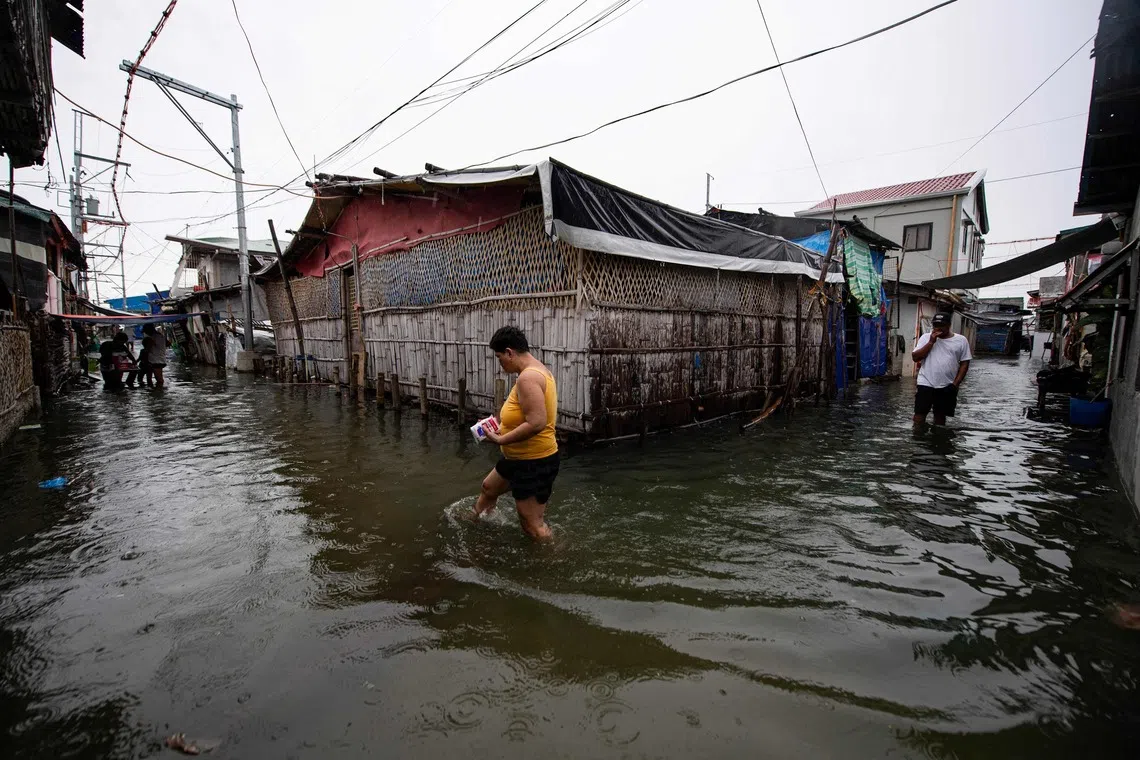Philippine court freezes assets linked to flood control project anomalies
Sign up now: Get ST's newsletters delivered to your inbox

Flood control spending came under scrutiny after a series of storms inundated several cities and provinces in the Philippines.
PHOTO: AFP
Follow topic:
MANILA – The Philippine Court of Appeals on Sept 16 ordered the freezing of 135 bank accounts and 27 insurance policies tied to individuals and companies alleged to be involved in flawed government flood control projects.
The Anti-Money Laundering Council (AMLC) did not identify the account holders but said the assets were linked to persons and entities now under investigation by the Senate.
“We are one with the public works department in going after the funds and assets stolen from our government and from our people,” AMLC executive director Matthew David said in a joint press conference with Public Works secretary Vince Dizon.
The freeze order follows Philippine President Ferdinand Marcos Jr’s creation of an independent commission to investigate corruption in infrastructure projects – with a focus on flood control spending, which came under scrutiny after a series of storms inundated several cities and provinces.
Mr David described the freeze order as a critical step towards the filing of civil and criminal cases, the seizing of illicit assets and the recovery of funds.
The court’s action stemmed from a Sept 12 request by Mr Dizon to the AMLC, asking it to petition the appellate court to freeze the bank accounts and assets of 26 public works officials and contractors.
Mr Dizon, who took the helm of the public works department in August after his predecessor resigned over the controversy, described the magnitude of corruption in flood control projects as “unprecedented”.
“It is a magnitude that I have never seen,” he said. “We are not talking about millions here. We’re talking about billions, maybe even hundreds of billions.” REUTERS

